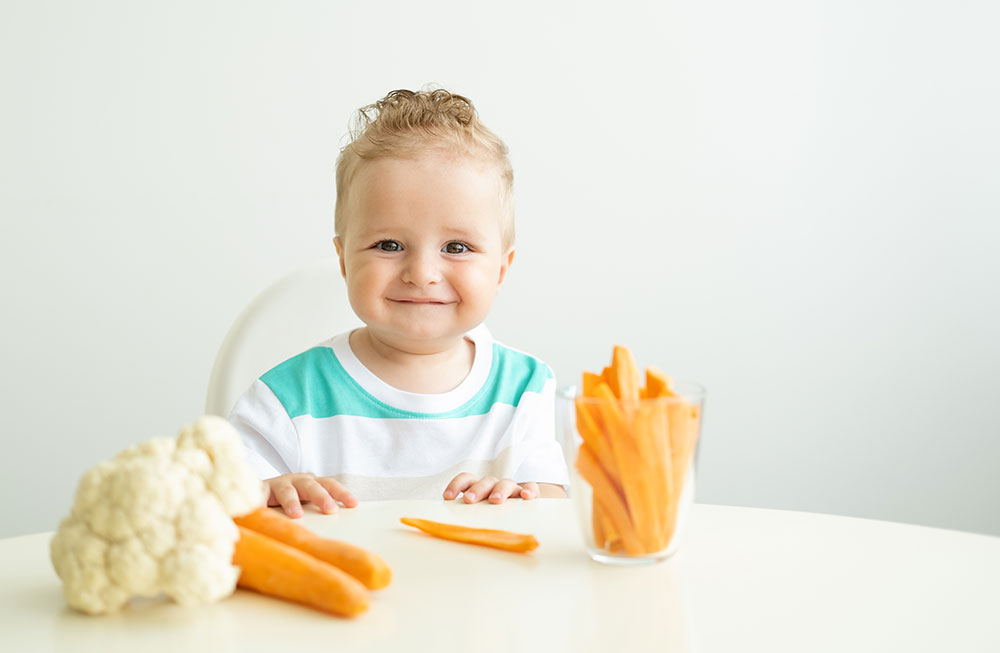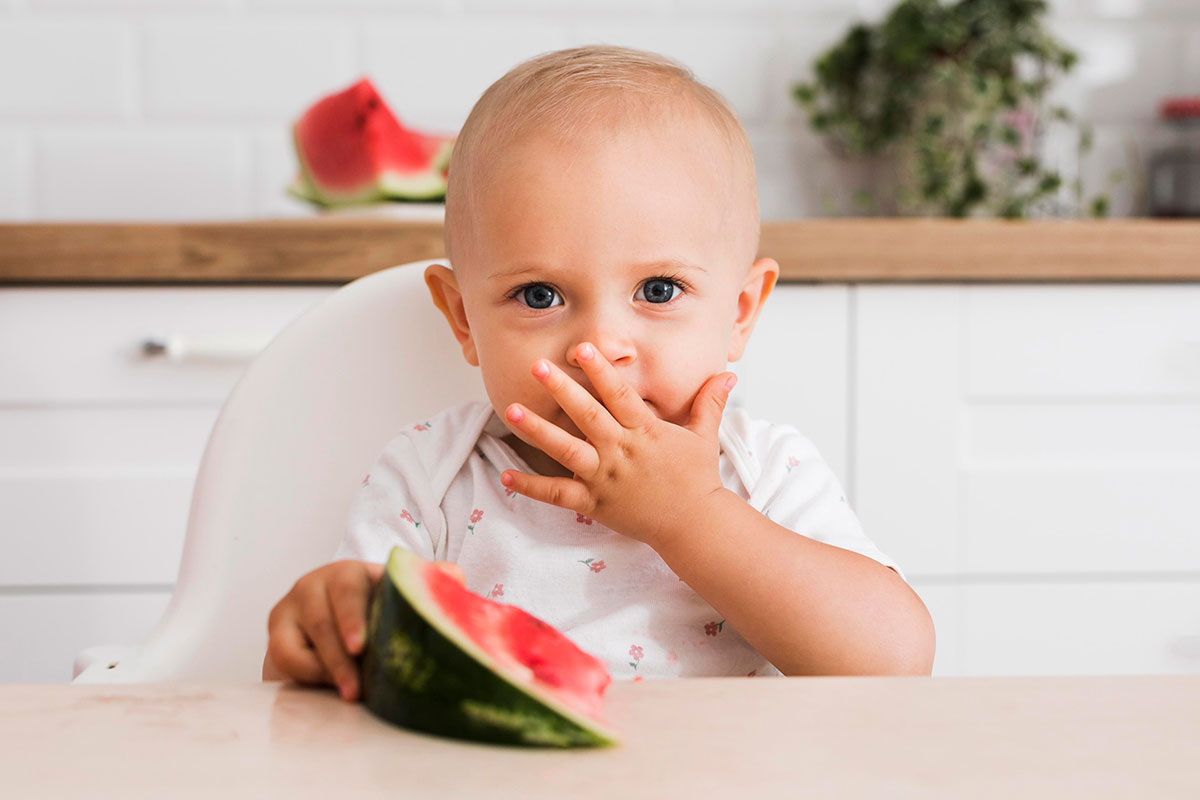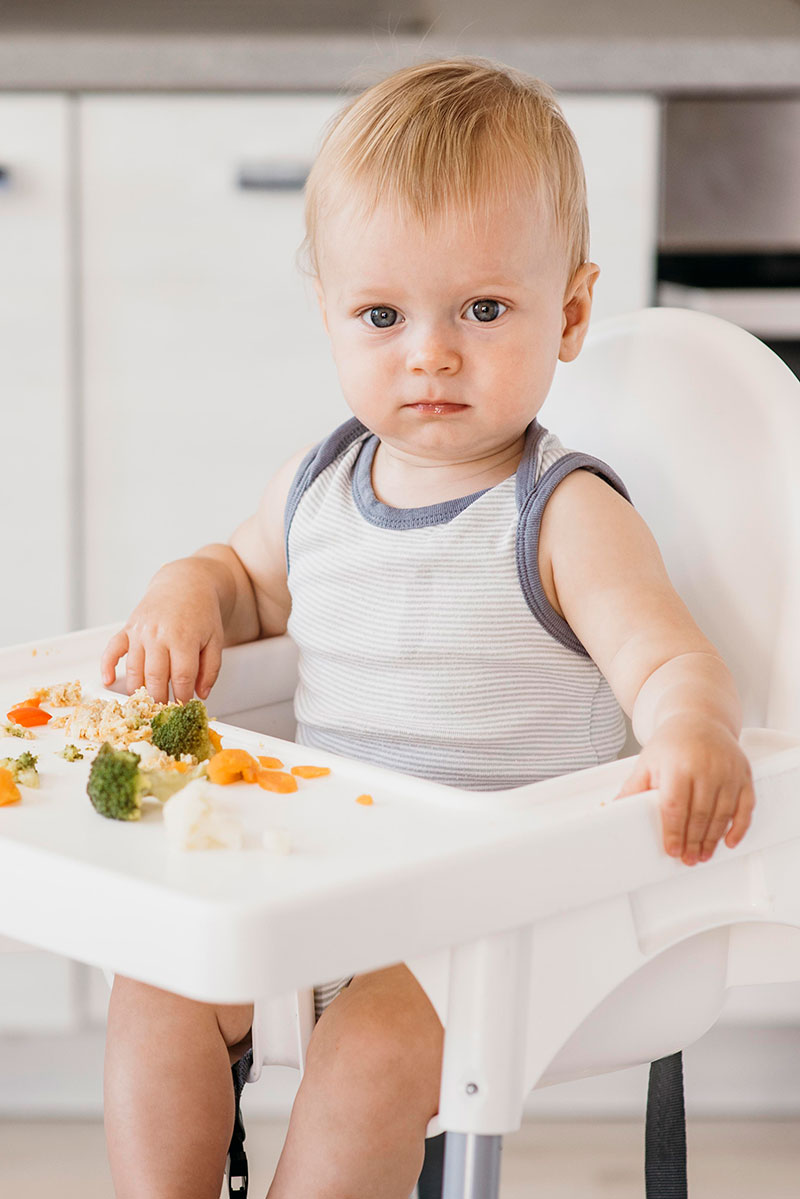
Expanding a baby's diet is an important step in a child's development. It requires proper preparation and knowledge to ensure the entire process runs smoothly and seamlessly – for the comfort of both baby and parents. Want to learn more about expanding a baby's diet? Learn what you need to consider and how to prepare.
Expanding your baby's diet - when to start?
Weaning a baby typically begins around six months of age. This is the recommended time because by this point, the baby's digestive system is usually ready to accept foods other than milk. Introducing solid foods earlier can increase the risk of food allergies and digestive issues. This isn't a rule, as each child develops differently. Some children may be ready for weaning earlier, while others may need more time. It's crucial to monitor for signs of readiness and consult with a pediatrician, who will help make the decision.

What are the signs that a child is ready to expand their diet?
- Sitting independently . Your baby can maintain a sitting position without significant support. This is important for safely feeding them solid foods;
- Interest in food . An infant becomes interested in food by observing parents or caregivers during meals;
- Hand-mouth coordination . The child is able to grasp and bring objects to the mouth, which is essential for independent eating.
- Loss of the tongue push reflex . In younger infants, the tongue push reflex becomes less pronounced, making it easier for them to eat solid foods.

Expanding your baby's diet: how to start?
Before beginning to introduce new foods, it's important to consult with a trusted pediatrician. Your doctor will help you assess your child's readiness for new foods and provide guidance on the appropriate method of introducing new foods. Your pediatrician can also advise on age-appropriate foods and how to avoid potential health issues, such as food allergies.
Choosing the right products
When expanding your baby's diet, choose nutrient-rich foods that are age-appropriate. Start by choosing easily digestible foods, such as vegetables (carrots, pumpkin, potatoes) and fruits (apple, pear, banana), cooked and blended into a smooth puree or gruel. Rice or corn porridge can also be suitable as the first solid foods.
Avoid introducing foods that may cause allergies, such as nuts, honey, strawberries, or gluten-containing foods, until your baby is older and their immune system is more developed.

Feeding methods
There are various approaches to introducing solid foods into an infant's diet. The traditional method involves feeding the child food in the form of purée using a spoon. This is the most common approach, allowing for control over the amount consumed and ease of use. The BLW (Baby-Led Weaning) method, on the other hand, allows the child to independently decide what to eat by presenting food in chunks that they can grasp and place in their mouth. The choice of method depends on the parents' preferences and the child's readiness to feed independently.
Mealtime Safety
When expanding your baby's diet, pay special attention to mealtime safety. Your baby should be fed in a sitting position to reduce the risk of choking . Your baby should never be left alone while eating. Food should be served at the right temperature to avoid burns. Avoid feeding small, hard pieces, which can pose a risk to your baby.

How to introduce new foods?
Initially, it's a good idea to introduce one new food to your baby's diet every few days. This will make it easier to recognize if your baby has any allergic reactions or intolerances to a particular food. If allergy symptoms occur, such as a rash, swollen lips, vomiting, or diarrhea, discontinue use immediately and contact your pediatrician.
It's recommended to introduce new foods at one meal a day, for example, at midday . This is a good time because it allows you to observe your baby's reactions to the new food and more easily spot any allergy symptoms. Gradually, as your baby becomes accustomed to new tastes and textures, you can increase the number of solid foods.
When expanding your baby's diet, you should carefully monitor your baby's reactions to new foods. If you have any questions or concerns about your baby's health, always consult your pediatrician.
Also read our article about the best places for family holidays with children in Poland .





Podziel się:
Girl's room - how to arrange it?
Girl's room - how to arrange it?